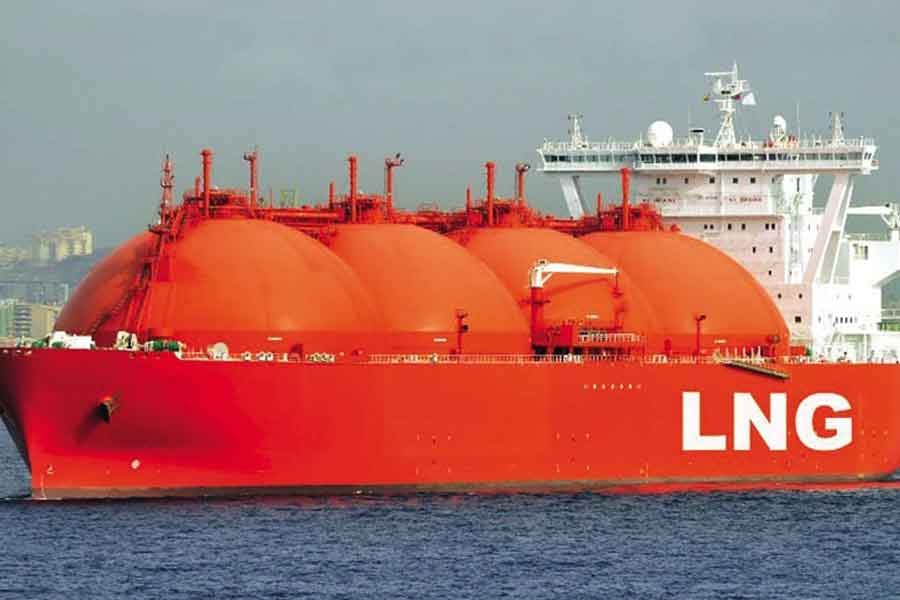Acute gas crisis across the country arising out of supply shortage of Liquefied Natural Gas (LNG) is learnt to have prompted the government to go back on its earlier decision of not buying LNG from the open market. Notably, the government's earlier decision was aimed at saving cost as well as regulating LNG use by general consumers in order to maintain the supply of gaseous fuel to the country's power plants at an optimal level. Obviously, the authority concerned, the Ministry of Power, Energy and Mineral Resources (MPEMR), had to consider the pressure of the public's ever-rising demand for natural gas. Clearly, the government only responded to the reality on the ground by returning to the costlier option of buying LNG from spot market. But can it be a permanent solution? Should the government be complacent if even the spot market for LNG gets stabler and its supply in bulk amounts from Gulf countries under the long-term deals continues as usual?
In truth, there is no room for complacency, given the country's increasing dependence for fuel on external sources in the face of the continued depletion of its indigenous natural gas reserves. Moreover, in keeping with the increasing pace of industrialisation and attendant economic growth, the demand for energy will multiply. At the same time, one has also to consider the fact that Bangladesh is on the frontline of the nations most vulnerable to the climate change. All these issues call for taking a more pragmatic as well as sustainable approach to energy use.
This is despite the other view about the country's actual gas reserve position. Going by the studies done by Bangladesh jointly with US and Norwegian geological surveys in 2001 and 202, Bangladesh is also one of the world's least explored gas basins. Those studies hinted at the country's potential for gas as enormous. In that case, efforts should be redoubled to explore untapped, potential sites of gas reserve and exploit those. However, until any fresh move to reassess our gas reserve position is made, it would be advisable to look at what we have at the moment and take pragmatic decision on energy use based on that. From the existing 27 gas fields, Bangladesh has already used up 18 trillion cubic feet (Tcf) of gas since the gas production started in 1960. This is out of its total known reserve of 28 Tcf. So, we are left with 10 or, at best, 11 Tcf of gas (as Petrobangla believes there is another 1.0 Tcf of gas as reserve). Considering the diminishing trend in gas production as of now, the existing reserve will be reduced to 0.365 Tcf by 2030.
Against this backdrop, alternative, renewable options of energy including solar, hydro and wind power as well as biomass need to be extensively explored and exploited. Currently, renewable energy makes up a mere 2.95 per cent of the entire energy production of Bangladesh. This includes 286.72 MW of off-grid energy. As such, the government's target that the renewable energy would be 10 per cent of the country's total energy to be generated in the current year and 20 per cent of that by 2030 might remain elusive unless aggressive steps are taken towards that target. In sum, the time for a hard choice for the government has arrived as the nation's present energy-use pattern cannot be said to be standing on a sustainable basis.


